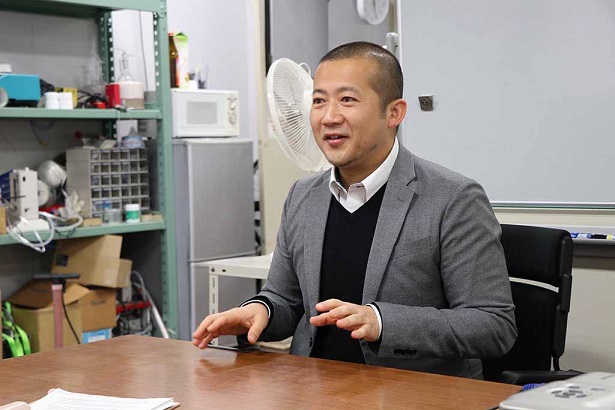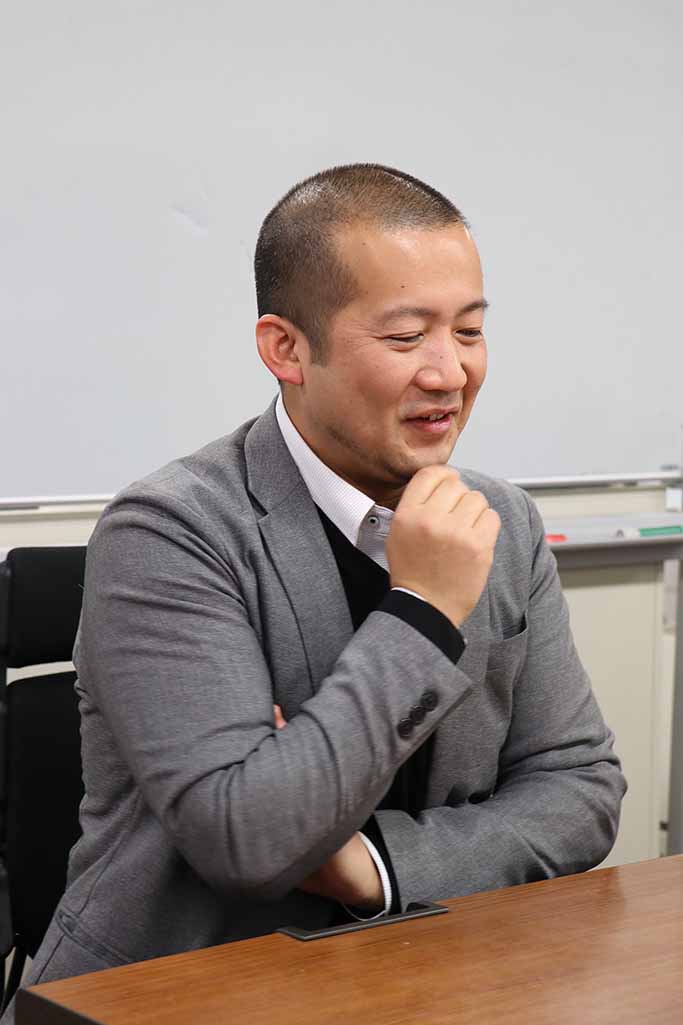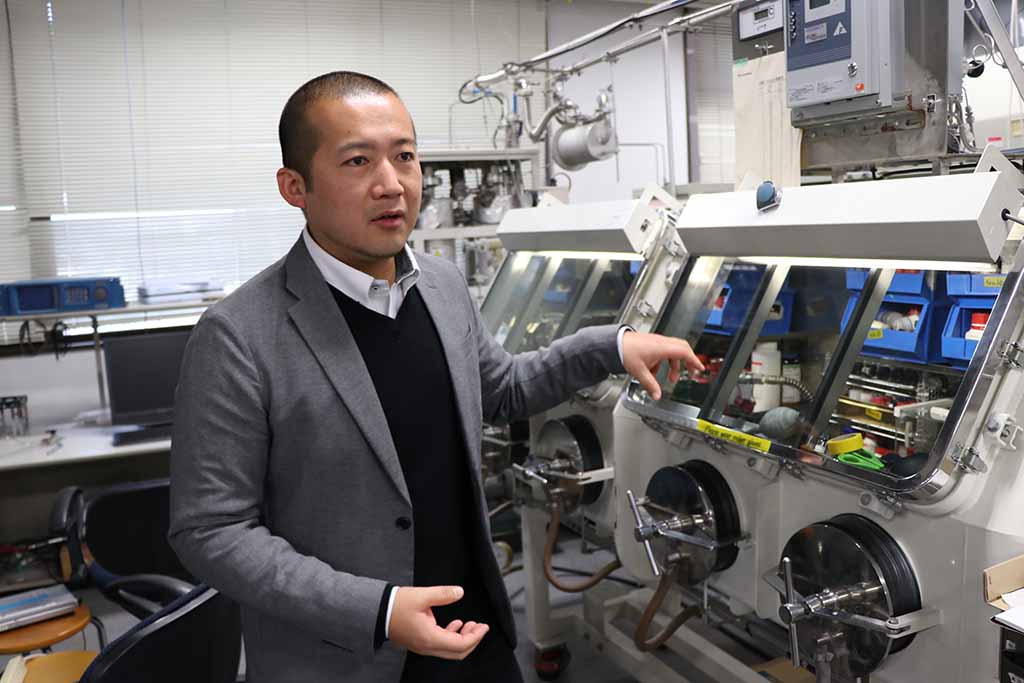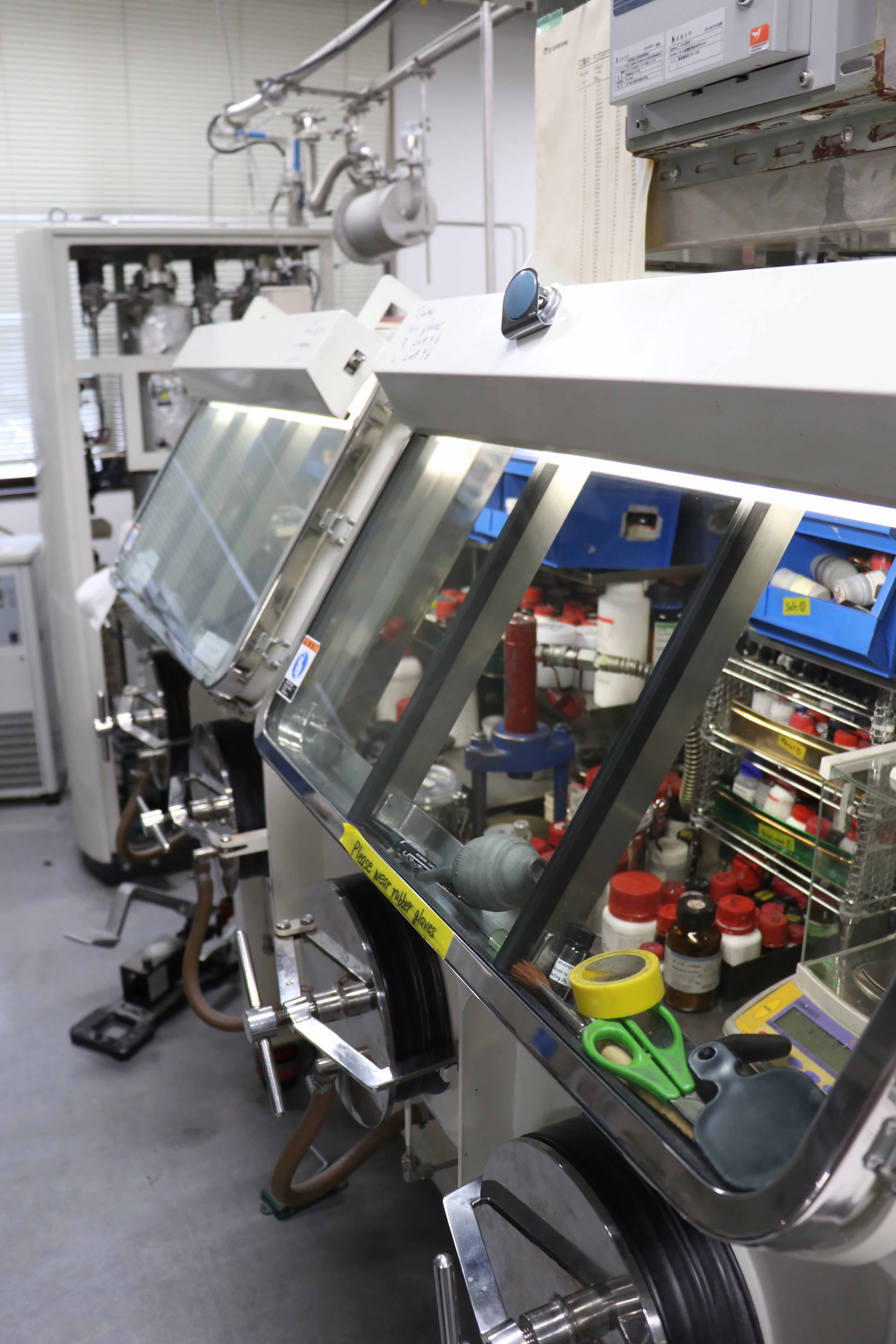A Conversation with Distinguished Researcher Hiroki Miyaoka
On February 1, 2013, Hiroshima University established two new programs: the “Distinguished Professors” (DP) program and the “Distinguished Researchers” (DR) program. Individuals who are part of these programs are recognized as senior and junior faculty members respectively, who are engaged in extraordinarily distinguished research activities.

Can you tell me your name and specialist field?
I'm Hiroki Miyaoka. My field is material science. Our group focuses on how to control chemicals, particularly hydrogen.
What is its practical purpose?
Hydrogen is important for the future of society. Hydrogen is very clean energy. Carbon dioxide is a serious problem all over the world and hydrogen is one of the important materials to decrease carbon dioxide emissions. If we use fossil fuels, carbon dioxide is emitted. But if we use hydrogen as a fuel, that means only water is emitted.
What is the future outlook for this field, what's the next big thing in your field?
Everyone knows that hydrogen cars are clean, smart, and cool. Even people who aren't scientists know that we can accept hydrogen as a fuel for the future. We have to change our basic energy system and understand how to use large amounts of hydrogen. Solar and wind power fluctuate and that can make it difficult to meet demand.
We must store and use energy. The battery doesn't have a high capacity for energy and it's difficult to store a large amount of energy for a long time. Hydrogen is a chemical material. It is easier to store larger amounts for a long time and transport large amounts of energy. We have to figure out a system for storing and transporting hydrogen. Japan can have a large amount of hydrogen and use it in our daily life.

Can you tell me about your background, how did you get into this field of work?
I've loved science since I was a child. When I was an undergraduate student, I studied thermoelectric materials and worked with faculty in physics. As a master's student, I changed my field to analytical science.
After graduating, I wanted to be a high school teacher. But I met a professor and he suggested I pursue a PhD and study hydrogen. I saw that was interesting, so I changed my field.
What are the challenges of your work?
We have the techniques to make hydrogen fuel, but now we are thinking about how to make it with a cheaper method so it can make it easier to distribute to our society. That is an important challenge.
What is the best thing about your research work?
As I said, I wanted to be a teacher and I like communication with my students. That is very important for me because students' ideas can be different but interesting. Sometimes we can talk and modify those ideas and then see the results. In our field, we have some quite detailed goals. How can we generate cheap energy? What conditions are required for practical applications? Of course, we must get results to reach those goals. That is important for research, but for me, the communication and relationship with students and other scientists is also very important.
What are you most proud of?
Our research could possibly change the energy system.

What are you working on now?
Our group doesn't focus on only one thing. We have a lot of topics: hydrogen production, hydrogen storage, and battery materials. I am focusing on material products in addition to hydrogen.
Nitrogen is quite abundant material. Nitride means that nitrogen has made a compound with some other element and it is quite a useful material for many fields. Nitrogen synthesis is very expensive, but the product can be very valuable. Nitrogen synthesis usually happens at high temperature, 1000 degrees Celsius, but now I am trying to modify the synthesis condition to lower temperatures. That way we can provide a cheaper nitride and use less energy to produce the material.
Can you describe your typical day?
I come to the university in the around nine in morning after spending time with my daughters and wife before she goes to work. We have two professors in our group and about 20 students. We have ten international students. Depending on meetings, I will go back to my home around 5 or 6—possibly. After my daughters go to sleep, I keep working at home.
What makes you excited about your work?
Of course, one thing is if we can get a good result in a good journal—but when students can get a good result that is basically the most exciting so I can continue this work. When we are talking about a new idea, method, or technology with professors and students, we should expect a good result.
What advice do you have for today's students?
Students can gain knowledge and get scores on their exams, but research needs creativity and imagination. That creation is really important and asking “What is the meaning of this result? What is the next step?” I would suggest they think deeply.
What are your thoughts on collaboration?
I have many collaborations. Because our field is not typical, we must share our information across disciplines. Our research is mainly the materials science but of course the power company focuses on hydrogen and many elemental technologies are required to reach a hydrogen society.
In that case, we must have collaboration with various types of groups, but also companies and sometimes other countries like China or India. I like collaboration and we need collaboration to make a good energy system for the future. We can make new research topics and new ideas that are important to developing the materials science field and of course the hydrogen field.
When not in the office, how do you spend your time?
Basically, I spend my time with my family. My wife and my two daughters. That is very a happy and fun time. At lunchtime, we go to the playground. On the weekend and after work is family time.

What will you be doing five years from now?
Because our field has drastically changed in ten years, of course the research topics and government priorities and grant situations, it's hard to know what to expect in five years. Japanese government wants to make a new energy system and highlight hydrogen at the Olympic Games. The Japanese government wants to promote that technology in Japan. Governments, companies, and universities must focus on working to develop technology to establish a hydrogen society.

 Home
Home